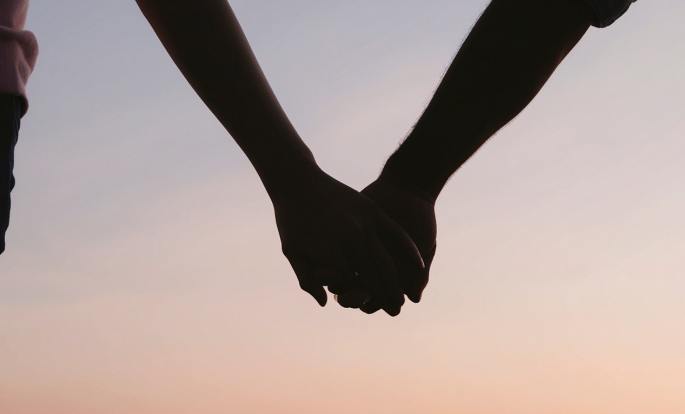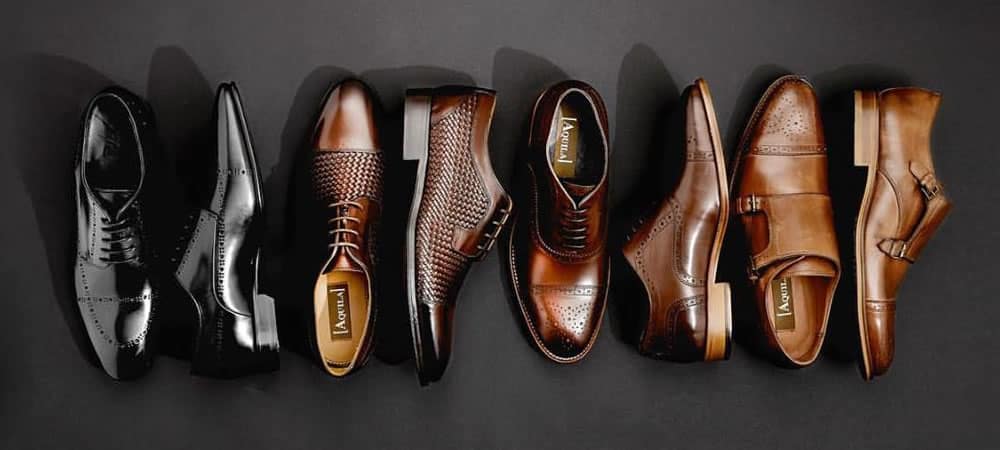6 of the best waterproof men’s jackets for spring showers from Finisterre
Feb 20, 2026The case for the ‘stimulating’ shirt – Permanent Style
- Dec 3, 2024
- 0 Comments
286
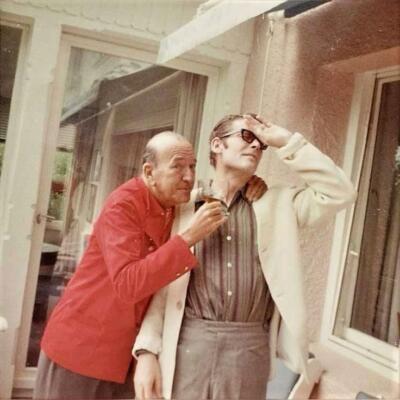
By Lucas Nicholson.
Whilst nattering away to Simon as I usually do on one of our days working together, I mentioned I had a revelation recently.
In my past life at Drake’s, I always favoured slightly eccentric tailoring (cream cord suit anyone?). But I’ve recently found my tailoring commissions have become more subdued (bar one fairly lairy Fox Tweed from Fred Nieddu; I am human after all!). My last two commissions were a classic-navy lambswool suit and a khaki cotton-linen.
Maybe it’s not working at a brand anymore, maybe I’m just getting older, but fun tailoring just isn’t landing for me as well.
The same applies to shirts. I’ve settled into a comfortable rotation of OCBDs in PS cloth from either Jake’s or Luca Avitabile. They’re amazing, make getting dressed a breeze, and allow for versatility. As Simon mentioned in The Italian Background this clean, smart uniform is a calling card for anyone trying to navigate the world of style without drawing too much attention to themselves.
Sometimes, though, there is an itch… For me, that itch has been scratched by experimenting with more interesting shirts instead of suits. It’s fun, an under-explored are in my view, and a lot cheaper than doing the same thing with tailoring.
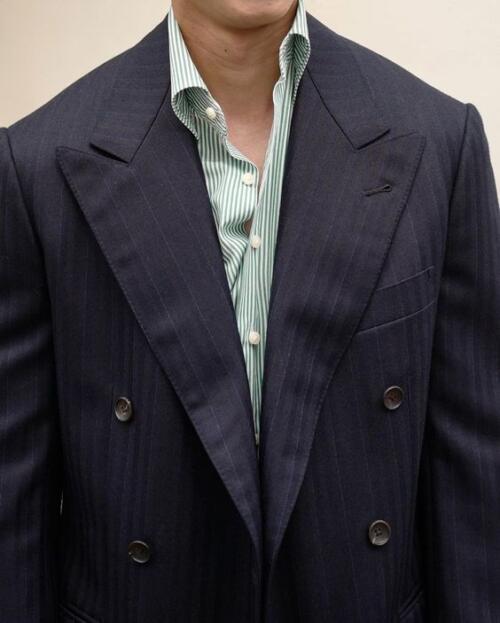
It began with the purchase of an old Armani Collezioni blue-striped shirt on Vinted. Subtle in colour but slightly bolder in its stripes, it had a soft collar and quickly proved to be an effective partner for loafers and tailored trousers, for an evening drink or cocktail. I’ve found it has a purposefulness that shows you’ve made an effort, but without going over the top in terms of dandyism or formality.
The fun shirt, as most menswear enthusiasts will know, is that preppy staple which mixes several patterns together in a single shirt (one more eccentric thing I’m guilty of having, indeed having multiple times, in my life).
So perhaps we should use the term ‘stimulating shirt’ instead for this idea – for a shirt that makes an outfit, that breathes new life into a classic navy suit. A shirt that can give the same sense of excitement and adventure as bold tailoring, but is easier to tone down and definitely costs a lot less.
Commissioning a suit these days, whether MTM or bespoke, is increasingly expensive. The cost therefore also grows of falling into the trap of getting something that turns out to be too loud. Such pieces also stand out more and you become “the guy in that jacket”. So I’ve been tumbling down the rabbit hole of the stimulating – or simply interesting – shirt.

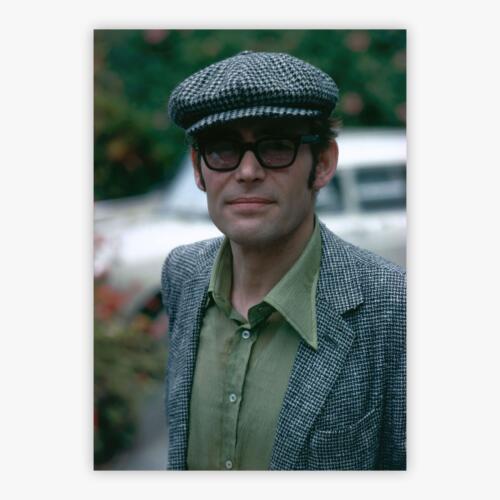
Historically, it appears the last time this was really a trend was in the nineties. It had a ‘Cool Britannia’ vibe when worn by Hugh (first image above) but was equally popular with a hellraiser like Peter O’Toole (second image). My thought that this could make a comeback was further stimulated by the recent lookbook from Michael Browne, featuring a blood red shirt with his signature sharp black tailoring (last image).
I’d suggest something can be borrowed from interior designers and their ‘unexpected colour theory’. This advocates “adding something, big or small, to a room where the colour wouldn’t conventionally match. It’s a colour pop, but with a twist of spontaneity…this surprising touch of colour enhances the overall aesthetic, providing a delightful dose of dopamine” (Taylor Simon). I feel we can all do with a top up of dopamine right now!
A stimulating shirt is less of a risk than a new suit, travels smaller, takes up less room in the wardrobe, and can be easily covered by a jacket if you suddenly stop feeling as confident as when you left the house!
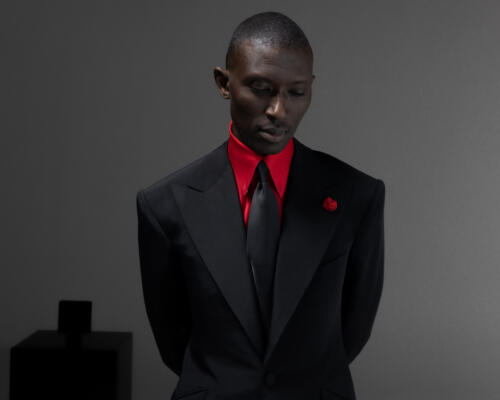
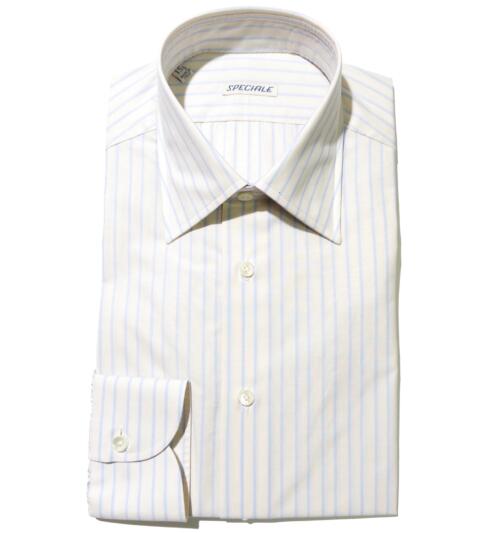
Skin tone is important here of course – as Simon wrote a couple of years ago, colour theory becomes much more relevant when colours are strong and close to the face.
But everyone can find their own level here, and what fits their own wardrobe. It might be a pop of Yves Klein blue, a deeply saturated red, or unusual but tonal stripes, such as those offered by the Florentine tailors Speciale in Notting Hill (above).
I also find unexpected patterns and colours are a helpful way to transition a formal look to a slightly more laissez faire, laid-back one. And if no one’s wearing a tie anymore, it’s just nice to have something else going on.

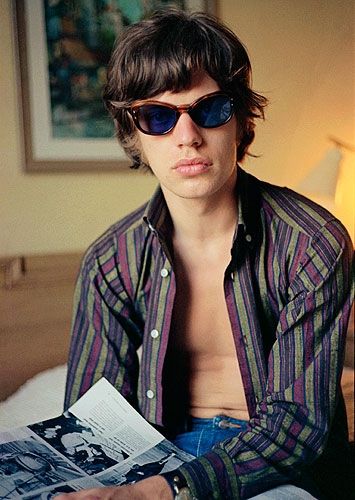
The stimulating shirt can also be a cheaper way to create less formal black-tie outfits (oxymoronic as that sounds). I’ve been looking at pale-coloured dress shirts, and imagine my nineties Armani tuxedo with a pleated, lavender shirt and large, floppy bowtie. It would be a way to stand out without splashing thousands on a new smoking jacket.
Most readers will probably have something in their closet that they commissioned as their more ‘novel’ suit – that, sadly, they tend not to reach for. (Simon, I’m looking at you and your purple Liverano). I imagine the guilt of a wasted commission staring them in the face, goading them into trying it on again, for the umpteenth time, and yet still not quite making it work. To them I say: a shirt stares you in the face a lot less, and is easy to hide in the back of the wardrobe.

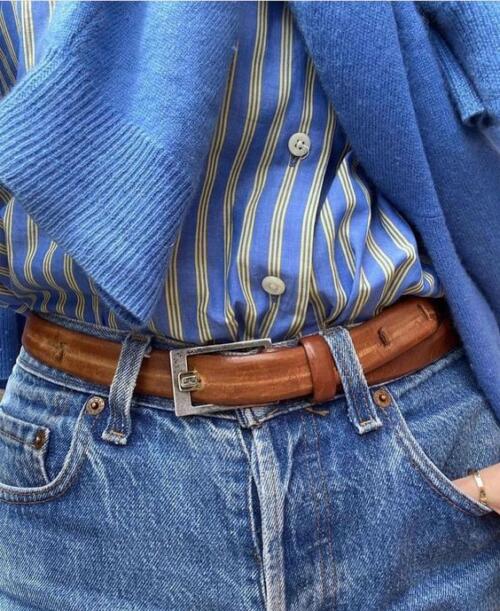
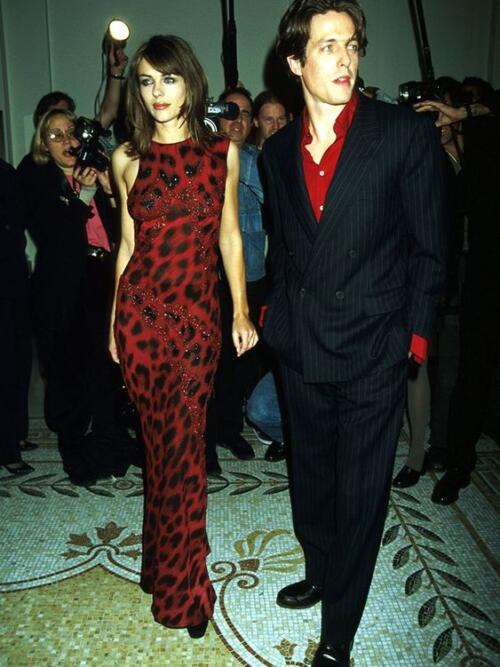
There is one big caveat to all this: taste is still a factor, and you can go too far. This is only my opinion but I think we need to leave the flamboyant Dad shirts of the 90s/00s in the past. You know the ones: floral prints, coloured buttonholes, contrast colours on the inside of the collar. But is this just a British thing?
In my experience it’s best to start with stripes. I would recommend avoiding florals and checks, at least to start with. It is possible to make these look good, but it’s much harder in my experience, so if you’re interested in this area I would start with stripes in subtle, muted tones and then build upwards.
Below are some examples I’ve found that are available now, and that I think would be a suitable stimulating shirt to elevate a classic wardrobe. From top to bottom:
Let us know whether you wear patterned shirts like this (particularly outside the summer) and with what tailoring.
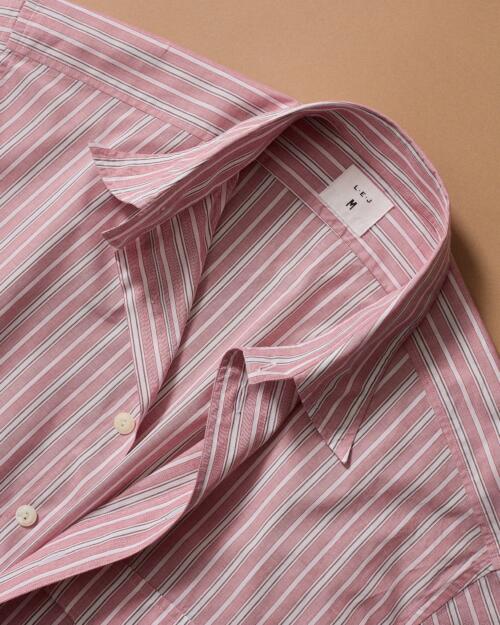
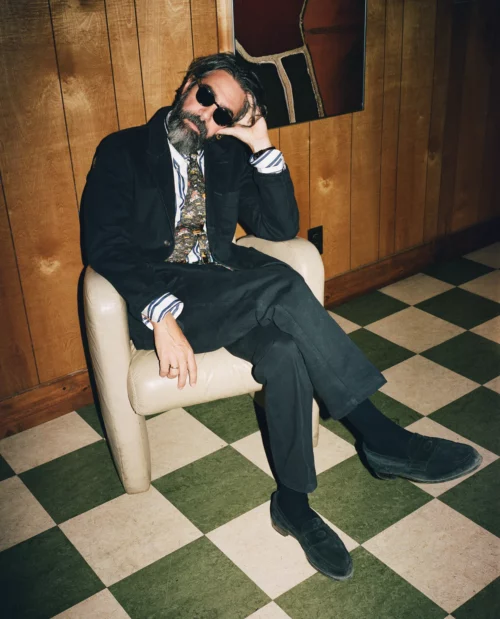
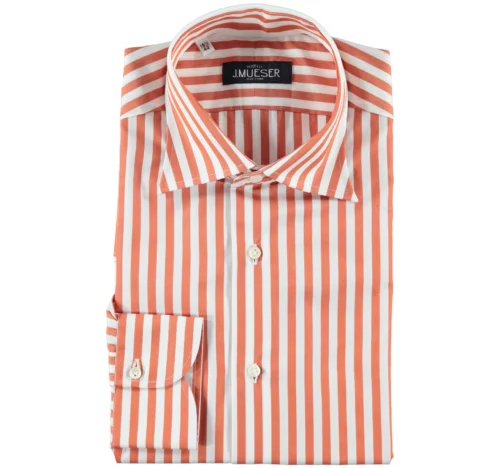
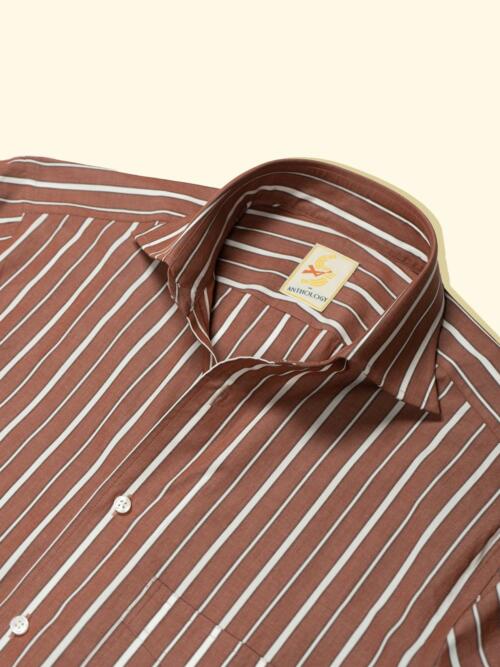
Publisher: Source link




